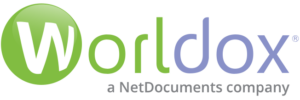Value of Document Management
Legal professionals can take advantage of the expertise and value Worldox and NetDocuments bring to the industry. Powerful document and email management allow you to take charge of your organization’s knowledge and intellectual property.
Every year, the amount of information you own soars… yet again. The information you possess — information you’ve paid to create — represents a huge potential competitive advantage. But that competitive advantage disappears if people can’t get to the right information at the moment they need it.
In too many organizations, that is still not possible. By one recent estimate, 15% of all documents are misplaced, and in some environments up to 30% of the workday is spent searching for information. The fact is, when it comes to finding what you’re looking for, all too often today’s shared hard drives, intranets, and even websites might as well be “electronic landfills.”
Without effective, coherent ways of managing their documents, organizations find it harder than it should be to address problems like document retention and compliance. Perhaps worst of all, businesses miss opportunities — either because they can’t identify them, or because they can’t respond quickly enough.
Document Management is the solution. (What’s a Document Management System? Read the blog.)
More than documents: organizations and people
Document management is not just about documents: it’s about organizations and people. It brings together all of an organization’s sources of knowledge, including relevant email communications and scanned paper documents, in addition to the usual word processing documents and spreadsheets — potentially, anything that can be stored as a file.
It starts from the premise that the content you create — in whatever form — is a key organizational asset. It should be easily accessible to anyone on your team who needs it, and has authority to see it… and inaccessible to anyone who doesn’t.
Your content should never become “invisible” – and, hence, useless – when its creator leaves the organization, or goes on vacation, or simply doesn’t want to share. Studies suggest that 80% of a company’s knowledge is stored as unstructured data. By helping you impart structure to this knowledge, document management systems address three major problems: organization, control, and access.
Enhancing Organization, Control, and Access
When you choose an advanced DMS, you can quickly and painlessly profile your new information in ways that make it accessible exactly when and where it’s needed. Your options for profiling and organizing documents are virtually infinite. If you’re a law firm, you might start by organizing your documents by client and matter.
These high-level categories are just the beginning: once you’ve organized your system and started to profile your documents, your people can get at knowledge in all kinds of new ways. With everyone following the same consistent, enforced rules, crucial documents that were previously lost can now be found.
Document management typically gives organizations far stronger control over document security and access. Confidential documents can be made available only to the people who need to see them, whether they’re in accounting, HR, or those who are responsible for confidential matters. By defining who can access which kinds of documents, document management systems avoid the problems that arise when you depend on simple document password protection.
Many document management systems also make it easy to set up boilerplate libraries for storing commonly used forms and basic documents: another major time-saver.
Enterprise-class document management for organizations of all sizes
Enterprise-class document management systems typically bring together all of the following components with exceptional simplicity, performance, and coherence:
- Library Services: tools for organizing and improving the way you save, catalog, and retrieve files
- Network Support: tools for giving users a single, unified point of access to all their data, wherever it exists on your network
- Document Security: a focal point for controlling user access and document permissions
- Full Text Retrieval: a search mechanism based on concepts, not just categories, giving users enterprise wide access to their documents
- Document Viewers: tools for viewing multiple types of files even when their source programs are not installed on the local client system
- Archiving: tools for moving dated or unused files to lower priority storage, while still keeping them accessible when needed
- Version Control: tools for tracking the evolution of a document, and ensuring that the correct version is being used and edited
- Document History: tools for auditing a document’s history: who did what to it, and when
- Access Control: tools for helping multiple authors coordinate their activities on a single document
“Industry trends among law firms and legal teams reflect a prevailing cloud-first strategy and the desire to future-proof their organizations with platforms that can deliver a wide variety of tools, seamlessly connect to other technologies, and scale with their needs. NetDocuments’ proven ability to support these capabilities coupled with their commitment to innovating new, customer-inspired solutions made the combining of our organizations a win-win for customers, partners, employees, and the legal industry as a whole.”
Rebecca Sattin, former CIO at Worldox and current Senior Director of Customer Success Operations at NetDocuments

